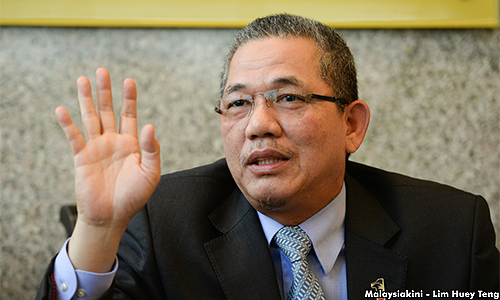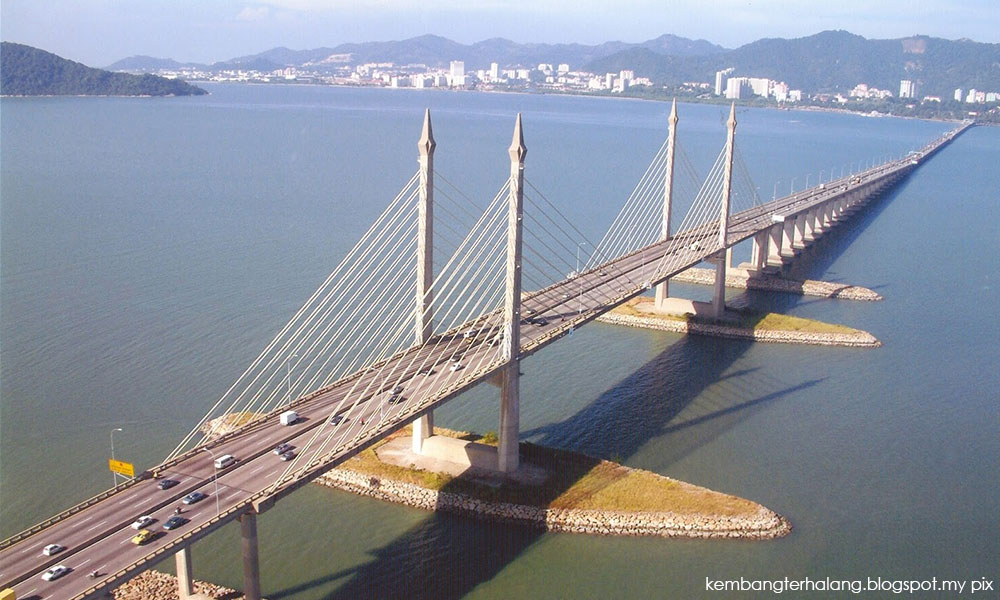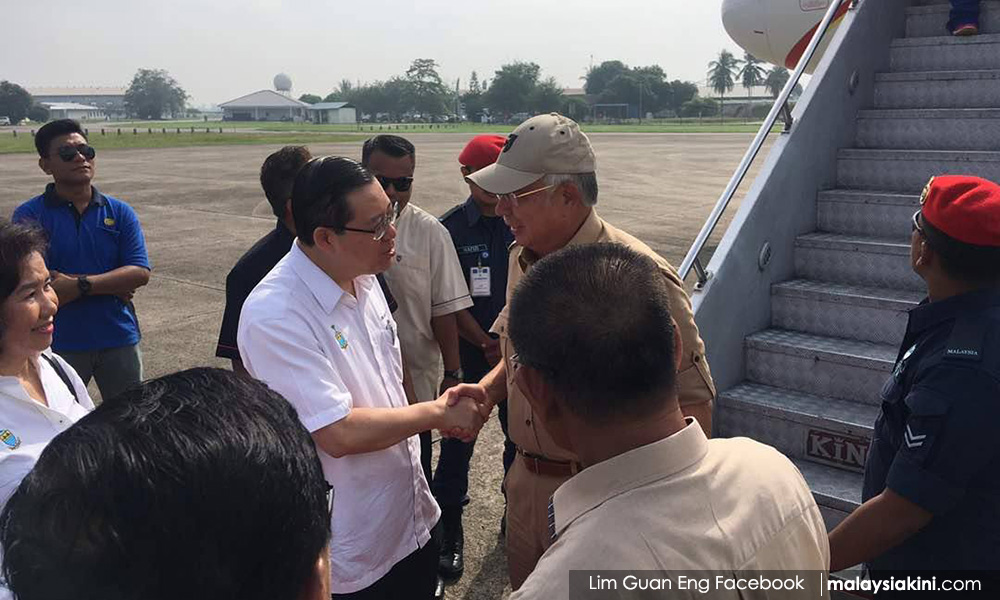ADUN SPEAKS | I would say that there is a concerted attempt on the part of federal politicians to systematically undermine Penang's transport infrastructure.
Two days ago, Works Minister Fadillah Yusof came out with his piece of advice to urge the Penang state government to abandon the undersea tunnel project as it was not feasible, and instead, asked why it had not reverted back on the option of the third bridge.
Let me respond to some of the issues that he has raised.
First, Fadillah said that giving out a 30-year concession period for the purpose of toll collection might be lopsided, in that it might hurt the Penang state government, financially.

Fadillah (photo) is very wrong on this matter. I think that the idea of giving out a 30-year concession to a possible party without any price guarantee is a marked improvement in comparison to what the federal government has done so far.
Since the federal government's road or other infrastructure projects are given on the basis of price guarantees, there is always the possibility of extending the time frame of possible concessionaires. This is what happened to the concessionaire of the Penang's first bridge and other toll concessionaires throughout the country.
The Penang government does not want to extend the tenure of the party that might be the future concessionaire of the tunnel project. In other words, the Penang government is well aware of the unhealthy practices of the federal government and how price guarantees have unwittingly allowed toll concessionaires to overstay their tenure.
Second, I don't think that the undersea tunnel project undertaken by the Penang state government might impose a huge financial liability on the ordinary citizens. Fadillah said that since the two bridges, the first and second, are not sufficiently utilised, there is no need for the tunnel. According to him, the first bridge is utilised about 87 percent whereas the second bridge is utilised about 50 percent. While he might be correct about the second bridge, I don't know how he arrived at the figure for the first bridge.
The difficult and sluggish flow of the traffic on the first bridge is the major cause of traffic jam on both sides of the divide. It is incorrect to say that the first bridge is underutilised. If the first bridge was underutilised, then why was a need for the second bridge in the first place? Ordinary commuters in Penang will have tales to talk about the traffic mess on the first bridge.

If there are no major traffic problems in Penang, why should the Penang state government embark on the Penang transport master plan? Now, if the tunnel is not necessary, why did not the federal government come out with its own suggestions on how to improve the traffic congestion in the state? Yes, it is well and good to talk about the tunnel project as a wasteful one without giving an alternative.
Third, what is so unusual about land swap as the method of payment for the road, as well as the tunnel project? The real question is how to pay for the infrastructure projects. Since federal funds are not forthcoming or being denied, the Penang state has no option but to pay for these projects in the form of a land swap. Why is it unusual? Don't tell me that the federal government had not engaged in land swaps in the past.
Let me ask Fadillah how was the payment effected for the Jelutong Expressway, the Butterworth Outer Ring Road and the Penang Outer Ring Road (although the project has been abandoned). There are many other cases, where the federal government had used other forms of payment, such as land swap, in embarking on major infrastructure projects. What was the form of payment for the construction of the Penang's second bridge?
Fourth, he said that by pre-determining the value of the land to be swapped for a project that would begin somewhere in the future, it would entail huge financial losses for the state government because construction costs are sure to rise. I don't think that any project as huge as the tunnel project would start as soon as the agreement is signed between the principal parties.
I don't think that these parties, including the state government, would have missed out on this point of the rise in construction costs. The same argument could be reversed at Fadillah by pointing out that the construction of both the first and second Penang bridges actually began not immediately after the signing of the agreements but after a gap of nearly 10 years or so. So the question is whether the federal government overpaid for the construction of these two bridges, as costs would have shot up.

Surely, Fadillah should not score brownie points on very basic issues that are well known to the state and those involved in the project. Well, if the federal government is so keen on giving a helping hand to the Penang state, why not assist us financially in looking for the most optimum solution? Isn't there a constitutional obligation on the part of the federal government to assist states in major transport infrastructure projects?
And finally, Fadillah pretends to be a good Samaritan and asks the question on why the Penang state government had not reverted to his ministry about the possibility of the third bridge project in place of the tunnel. Well, if Fadillah thinks that this is an option, why not? We are ready to talk, just give us the green light.
I am not criticising the federal government or the ministers, whether they are in the MCA or in other component parties of the BN. All I want is for these ministers to understand and be sensitive to the future needs of the people in Penang. Traffic congestion is on the rise - and it will get worse if nothing is done to arrest the problem.
P RAMASAMY is Penang deputy chief minister and the state assemblyperson for Perai.
The views expressed here are those of the author/contributor and do not necessarily represent the views of Malaysiakini.

